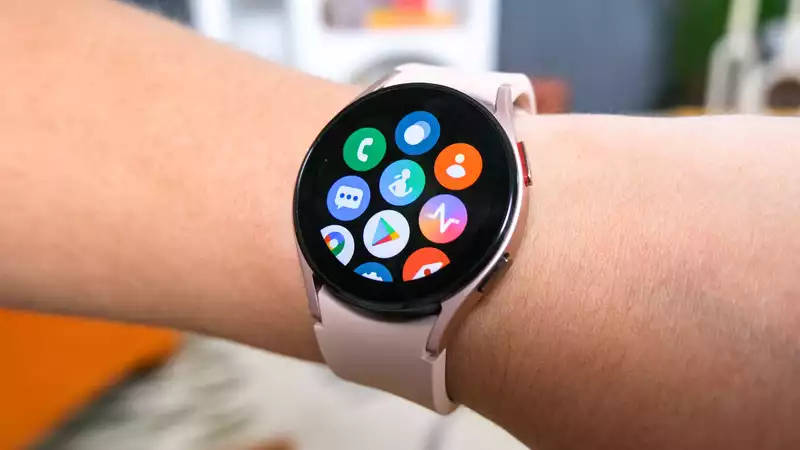A fundamental feature of Samsung's Galaxy Watch 4 is new software, a unified version of Google's Wear OS called Wear OS 3.
Unlike past Tizen-powered Galaxy watches, the Galaxy Watch 4 series is powered by Google's suite of programs; just as the Apple Watch was built for iOS users, Samsung's latest device is all Android users.
By folding Tizen into the Wear OS, Samsung and Google have taken a major step forward in integrating the smartwatch platform market. Just as smartphone makers can customize Android to better fit their brands, Wear OS allows for expansion for wearable makers. As such, I feel that the Galaxy Watch 4 supports greater Samsung ecosystem integration thanks to the One UI Watch while maintaining the familiar aspects of Tizen.
Getting to know Wear OS on the Galaxy Watch 4 is a refreshing experience, even if it is technically a reintroduction. Some of the features were great from the start, improving on what was already one of the best smartwatches you could buy.
Others are less impressive, at least in my testing so far. Below are some of the features of the Galaxy Watch 4's Wear OS that I like and dislike.
Google Maps on the Samsung Galaxy Watch 4 is impressive. As someone who relies on Google Maps everywhere I go, dealing with the fickle Apple Watch version of the app was a drag. But now, when I start a route from my Samsung Galaxy Note 20 Ultra, it automatically launches on my wrist with turn-by-turn directions.
When walking or driving, the Galaxy Watch 4 buzzes as you take the next step. I appreciate this signal, as it is more interesting (and safer) to walk upward.
The Samsung Galaxy Watch 3 has a T9 keyboard, which I used for text input more often than I expected. You would think it would be silly to type on such a small screen, but I appreciated being able to send messages when talk-to-text wasn't available or I didn't want to draw letters. This is one feature I wish Apple had copied in watchOS 8.
But they didn't, and so in the ongoing Wear OS vs. watchOS showdown, Google's software is one step ahead. when sending a message in Wear OS, you have the option to type using the T9 keyboard. Simply click on a number, and the corresponding letter will pop up for you to choose from.
Now, let's move on to the not-so-good things about the Galaxy Watch 4's Wear OS. Samsung's Galaxy Watch 4 lacks a killer feature at launch: the Google Assistant. Samsung told Android Central that the Galaxy Watch 4 series does not yet have Google Assistant. Apparently, the Assistant will eventually be included in the new smartwatch, but it is unclear when that will be. For now, all I can do is talk to Bixby.
Once Google's voice butler is built into the Galaxy Watch 4, users will be able to control the best Google Home-enabled devices in their smart homes and other benefits that come with knowing how to use the Google Assistant, including the best Google Will Bixby be able to do that? I don't think so.
One thing to note here is that the Galaxy Watch will not be available until August 27. So there is plenty of time for updates to be made before more people put the new smartwatch on their wrists.
I'm not necessarily disappointed about the battery life of the Samsung Galaxy Watch 4. I'm just puzzled; during Google I/O, Wear OS developers promised that their new software would bring better battery life to smartwatches running the unified platform.
Instead, the Galaxy Watch 4's battery life may be slightly worse than the Galaxy Watch 3. In our first few days of testing, the smartwatch lasted about 20 hours before needing to be recharged. This was with the always-on display enabled, nighttime blood oxygen measurements, and activity tracking. Sure, I may be challenging battery life, but those are all features of the Galaxy Watch 4 that the average person would want to use.
More time needs to be spent on the Galaxy Watch 4's Wear OS. Getting familiar with the new software requires hours of testing, especially in real-world applications. However, I can say that the brief time I spent playing with Samsung's Galaxy Watch 4 software was the best experience I've had with Google's wearable platform.
.









Comments